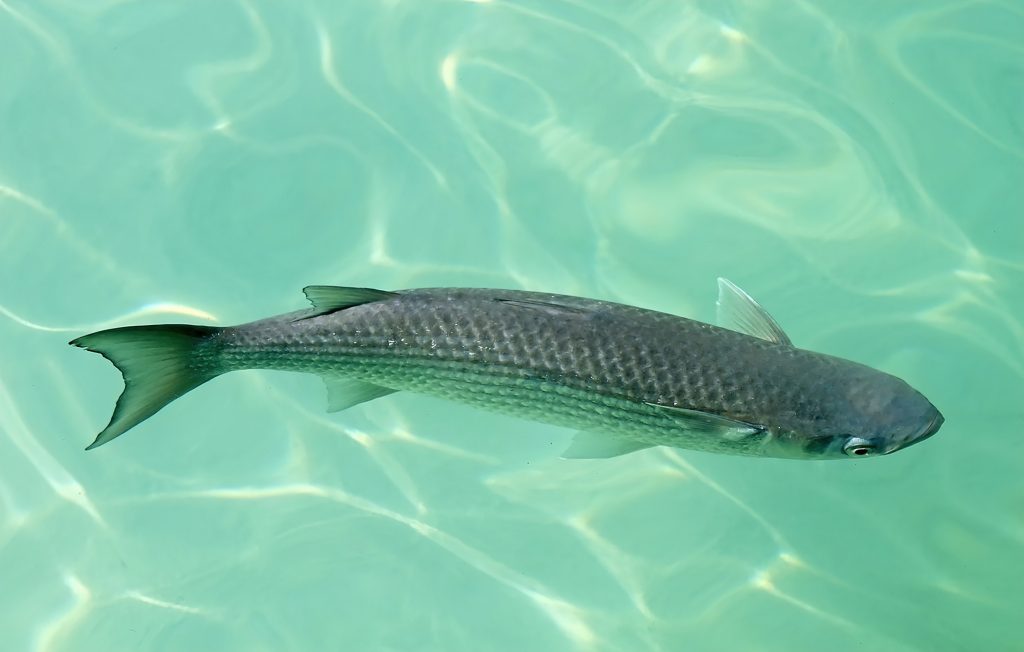- The Excitement of Striped Mullet Fishing
- Striped Mullet Biology and Habitat
- Essential Gear for Striped Mullet Fishing
- Best Baits and Lures for Striped Mullet Fishing
- Top Techniques for Targeting Striped Mullet
- Tips for Locating Striped Mullet
- Adapting to Different Fishing Conditions
- Striped Mullet Fishing Regulations and Conservation
- Hone Your Striped Mullet Fishing Skills with Expert Techniques and Tips
The Excitement of Striped Mullet Fishing
Striped mullet fishing offers an exhilarating experience for anglers of all levels. This hard-fighting, fast-swimming fish provides endless excitement, making it a favorite target for many. In this comprehensive guide, we will cover striped mullet biology and habitat, essential gear, best baits and lures, top techniques, and tips to help you hone your striped mullet fishing skills.
Striped Mullet Biology and Habitat
Behavior and Feeding Patterns
Striped mullet (Mugil cephalus) are a schooling fish that can be found in both fresh and saltwater environments. Their diet primarily consists of algae, detritus, and other organic matter. Striped mullet have unique feeding patterns, often cruising near the surface and filtering food through their gill rakers.
Prime Striped Mullet Locations
Striped mullet can be found in a variety of locations, including estuaries, coastal lagoons, and rivers. They are most commonly found in shallow water, making them accessible to anglers from shore, piers, and boats.
Essential Gear for Striped Mullet Fishing
Rods and Reels
For striped mullet fishing, a medium to medium-heavy action spinning rod between 7 to 9 feet in length is ideal. Pair the rod with a matching spinning reel capable of holding 200-300 yards of 10-20 lb monofilament or braided line.
Line, Hooks, and Terminal Tackle
When fishing for striped mullet, it is essential to use a strong, abrasion-resistant line, such as a 10-20 lb monofilament or braided line. For hooks, use size 4 to 1/0 circle hooks, which are less likely to damage the fish’s mouth. Terminal tackle like swivels, sinkers, and floats will also be necessary to complete your setup.
Best Baits and Lures for Striped Mullet Fishing
Natural Baits
Natural baits are highly effective for catching striped mullet. Popular choices include live or dead shrimp, small crabs, and cut bait such as squid, mullet, or other fish species. When using live bait, hook it through the tail or just behind the head to keep it lively and attractive.
Artificial Lures
Artificial lures, like small jigs, spoons, and soft plastics, can also be successful in catching striped mullet. Choose lures that mimic their natural prey, such as shrimp or small baitfish, and be prepared to switch up your presentation to find what works best.
Top Techniques for Targeting Striped Mullet
Cast Netting Strategies
One of the most effective ways to catch striped mullet is using a cast net. Locate schools of mullet and practice your cast netting technique to catch multiple fish at once. This method requires skill and patience but can yield impressive results.
Pole Fishing Techniques
Pole fishing, also known as float fishing, is another productive method for targeting striped mullet. Rig a float above your bait, adjusting the depth to match the water you are fishing. Cast your line and let the bait drift naturally with the current, enticing mullet to bite.
Chumming Tactics
Chumming is a technique used to attract striped mullet to your fishing area by dispersing food into the water. Use a mixture of bread, corn, or other fish-attracting ingredients to create a chum slick. Cast your bait into the chummed area and wait for mullet to arrive.
Tips for Locating Striped Mullet
Identifying Productive Mullet Habitat
Striped mullet are often found in shallow waters near structures such as docks, piers, bridges, and jetties. Look for areas with a mix of vegetation, rocks, or sand, as these provide ideal feeding grounds for mullet. Additionally, tidal changes can influence their movements, so pay attention to the tides when planning your fishing trip.
Utilizing Electronics and Maps
Modern fishing electronics, like fish finders and GPS units, can help you locate striped mullet more efficiently. Use these tools to identify potential hotspots, underwater structures, and changes in depth. Maps, either paper or digital, can also aid in finding productive fishing locations by showing the contours of the water body and nearby landmarks.
Adapting to Different Fishing Conditions
Weather and Water Clarity
Weather conditions and water clarity play a significant role in striped mullet fishing success. Overcast days and slightly murky water can make mullet more comfortable and likely to feed near the surface. On sunny days with clear water, they may be more cautious and harder to catch.
Time of Day and Seasonal Factors
Striped mullet are most active during the early morning and late afternoon hours. These periods often coincide with the best feeding opportunities. Additionally, mullet tend to move into shallower waters during the cooler months, making them more accessible to anglers.
Striped Mullet Fishing Regulations and Conservation
Size and Bag Limits
Fishing regulations for striped mullet vary by location, so it’s essential to check your local laws before heading out. Regulations may include size and bag limits, as well as specific seasons during which mullet fishing is allowed.
Ethical Angling Practices
Practicing ethical angling techniques is crucial for the conservation of striped mullet populations. Proper handling, catch and release techniques, and using circle hooks can help minimize harm to the fish. Additionally, following local regulations and only keeping what you plan to eat can contribute to sustainable fishing practices.
Hone Your Striped Mullet Fishing Skills with Expert Techniques and Tips
Striped mullet fishing offers an exciting and rewarding experience for anglers who are willing to learn and adapt. By understanding striped mullet biology and habitat, using the right gear and techniques, and practicing ethical angling, you can maximize your success on the water. With expert tips and tactics, you’ll be well on your way to becoming a skilled striped mullet angler.

